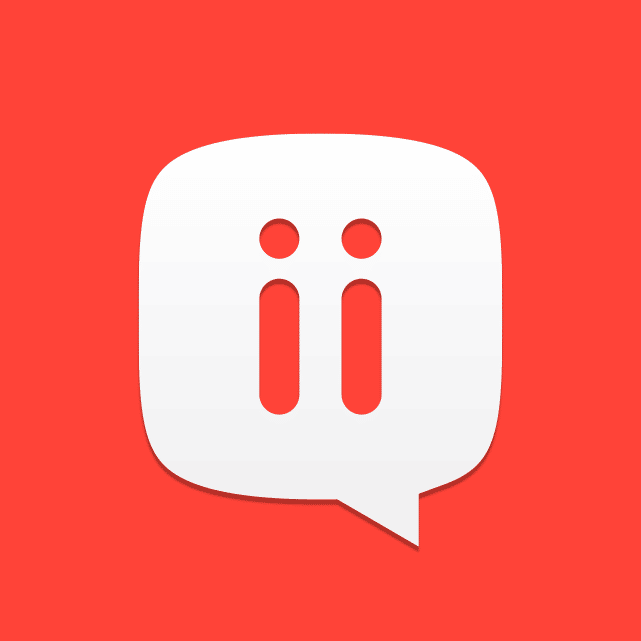
Language Learning on Social Media: 5 Platforms Built for Learners
What if you could turn your social media time into language learning time?
I’ll show you five language learning social media platforms where you can connect with native speakers and other learners from around the world, build your vocabulary and practice your language skills.
Yes, technology for language learning is every language student’s best friend, and social media is an exceptionally fun way to learn any language.
Contents
Download: This blog post is available as a convenient and portable PDF that you can take anywhere. Click here to get a copy. (Download)
1. italki
Also available on: iOS | Android
Price: Starts at $5 per lesson
The language learning app italki may be best known for its one-on-one language lessons, but it also offers terrific community features on its website, whether or not you’re taking lessons.
For instance, you can post writing to the “Notebook” section for native speakers to correct. “Answers” allows you to ask questions and/or peruse responses to other users’ questions. “Discussions” allows you to discuss what’s on your mind, whether you’re seeking friends, asking a pressing language question or just wanting to chat about current events in your target language.
Aside from posting publicly, you can also view other user’s profiles on the “Language Partners” page. From there you can send messages or hit “Add Friend” to start building up your network.
As it’s also a platform for professional teachers, italki offers one of the most varied and colorful learning experiences that can be found on the web. You can hire one of the platform’s professional, experienced language educators who’ll teach you everything from grammar to slang to day-to-day conversations.
All you need to do to get started is to select your preferred teacher, then schedule a paid trial lesson.
All in all, the array of options makes italki a great social network for language learners. You can read our full review of the program here.
2. Speaky
Also available on: iOS | Android
Price: Free
Speaky is a free language exchange app that can connect you to a world of learning opportunities.
Just select what language you want to practice and sign up through your Facebook or Google+ account. With more than 180 countries and 110 languages represented, you can practice common or even uncommon languages.
Speaky allows you to connect with other users who share your interests, so you’ll always have something to talk about.
It’s easy to scroll through a feed of profiles to see who’s online and learn more about them. Every user’s profile shows what languages they speak, what they’re learning and what level they’re at—and Speaky also makes it easy to distinguish native speakers in particular.
Through a web browser, you can engage in audio or video chat. Through the app, you can text chat. Audio messages and file sharing are also in the works.
Connecting like this is a helpful way to get real-world practice in your target language in a comfortable setting that encourages learning and growth.
3. HiNative
Also available on: iOS | Android
Price: Free; Premium plans start at $9.99 per month
Got a question? HiNative can help!
HiNative is a question-and-answer platform for language learners. Simply post a question in text or audio. To make it simpler, you can even use HiNative’s built-in question templates or post a picture to give other users some context.
Then, native speakers can respond with text and/or audio answers. This makes HiNative a good way to ask grammar questions, find out how something is pronounced, seek clarification on slang or even ask whether your pronunciation is correct.
In addition to language questions, HiNative also accepts questions about culture, so you can get tips and insights into countries around the world. And if you’re feeling friendly, you might also try answering people’s questions about your native language or country.
HiNative has users from over 170 countries and supports over 110 languages.
The basic version of the app is free, but the premium version ramps up the social media-style features. You’ll get all of the following: to hear every voice answer (including to other users’ questions), a search feature, notifications and “premium tickets” that highlight your questions to get them more attention.
For more information, read our full review of HiNative here.
4. Lingualia
Price: Free; Premium subscriptions start at $9.95 per month
When you sign up for Lingualia’s language lessons, you also get access to its language learning social media platform.
This network aims to help you make new friends who are native speakers. From there, you can practice your target language, ask questions, receive help and help others (a good deed always feels good!).
Lingualia offers Spanish and English courses, and you can interact with other learners with a free subscription. Additional website features like dialogues and example audio require a paid subscription.
5. UniLang
Price: Free
UniLang is a language learning forum, which is like an old-school social network, and there are a number of different forums to meet your learning needs here.
To get started, check out the “General Language Forum,” which is great for getting your feet wet and discussing languages in general. Some topics that are discussed include language games, translations, words you just learned, words you’re struggling with and more.
UniLang also has a “Culture” board to help you learn about world cultures. Topics include literature, politics, religion, music, clothing and more.
For focused help in your target language, look to the wide array of language-specific forums. There are forums for common languages such as English, Spanish, French, German, Chinese and Japanese, but there are also forums for less common languages like Faroese and Basque.
Some forums also discuss specific language groups, like Celtic languages, North American indigenous languages and Sami languages. And if you’re learning a constructed language or developing one yourself, there’s even a forum for that!
Perhaps best of all, UniLang is still an active forum (despite its dated interface), so new posts do appear, albeit infrequently these days.
If you’re looking to “friend” and “follow” your way to better language skills, look no further than these language learning social media platforms!
Download: This blog post is available as a convenient and portable PDF that you can take anywhere. Click here to get a copy. (Download)
And One More Thing...
If you dig the idea of learning on your own time from the comfort of your smart device with real-life authentic language content, you'll love using FluentU.
With FluentU, you'll learn real languages—as they're spoken by native speakers. FluentU has a wide variety of videos as you can see here:
FluentU has interactive captions that let you tap on any word to see an image, definition, audio and useful examples. Now native language content is within reach with interactive transcripts.
Didn't catch something? Go back and listen again. Missed a word? Hover your mouse over the subtitles to instantly view definitions.
You can learn all the vocabulary in any video with FluentU's "learn mode." Swipe left or right to see more examples for the word you’re learning.
And FluentU always keeps track of vocabulary that you’re learning. It gives you extra practice with difficult words—and reminds you when it’s time to review what you’ve learned. You get a truly personalized experience.
Start using the FluentU website on your computer or tablet or, better yet, download the FluentU app from the iTunes or Google Play store. Click here to take advantage of our current sale! (Expires at the end of this month.)









